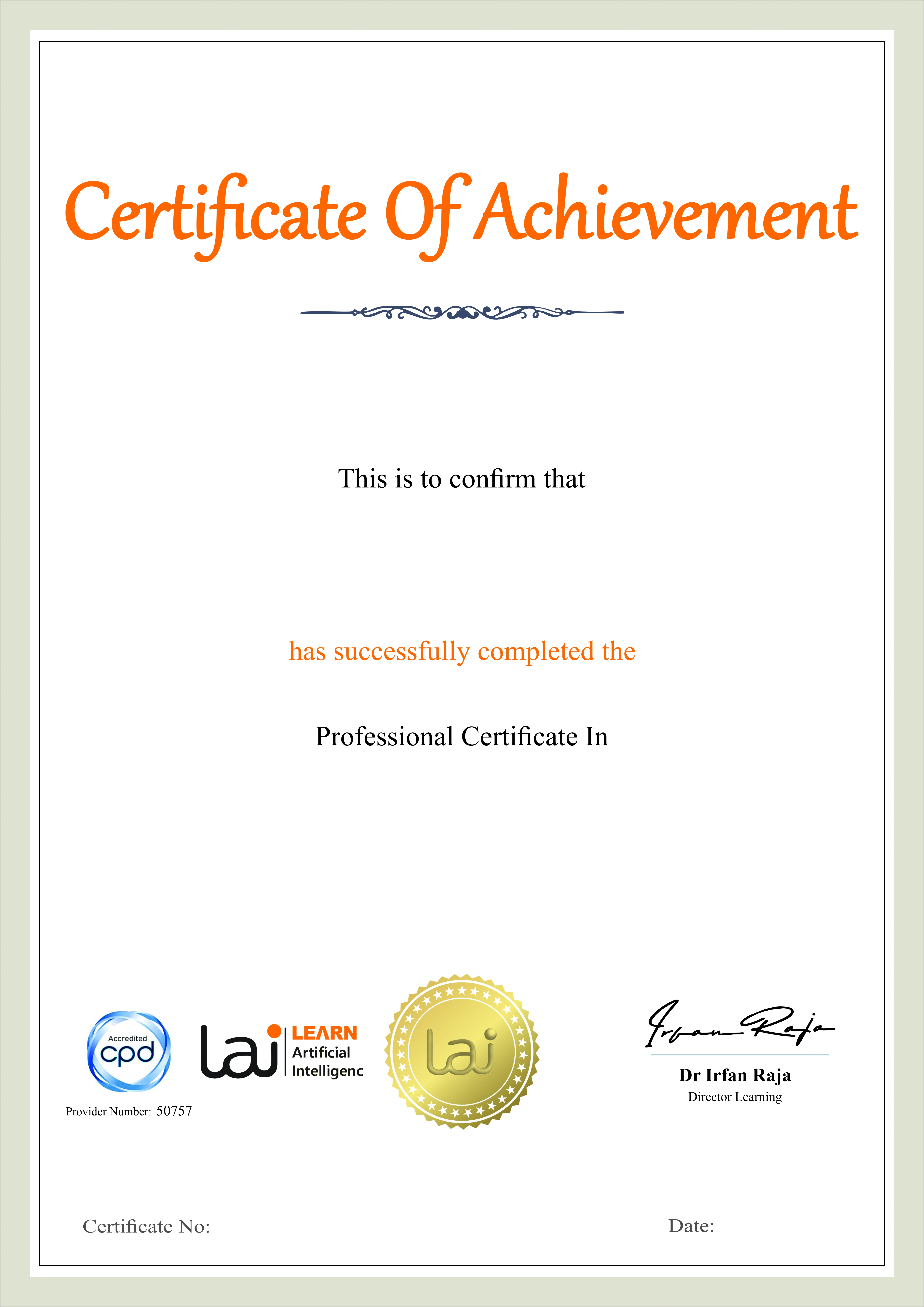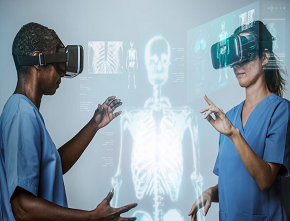The Artificial Intelligence and Medical Imaging course provides an in-depth exploration into how AI is revolutionizing the field of medical diagnostics.
Artificial Intelligence and Medical Imaging
The Artificial Intelligence and Medical Imaging course provides an in-depth exploration into how AI is revolutionizing the field of medical diagnostics. From enhancing the clarity of image data to accurately detecting anomalies, artificial intelligence is transforming medical imaging into a faster, more accurate, and data-driven discipline. This course offers a comprehensive guide to the use of artificial intelligence in medical imaging, including key processes such as image segmentation, classification, feature extraction, and deep learning techniques.
Whether you're a healthcare professional, data scientist, or technology enthusiast, this hands-on course will help you understand how AI models are trained and applied to interpret complex medical images with precision. You’ll gain valuable insights into real-world applications and case studies across various imaging modalities such as MRI, CT, X-ray, and ultrasound. This course blends theory with practice, giving you the tools to work confidently at the intersection of artificial intelligence and medical imaging.
This course is tailored for healthcare professionals, radiologists, data scientists, AI developers, and medical students who are eager to explore the growing role of artificial intelligence in medical imaging. It’s also ideal for tech enthusiasts with a passion for healthtech and those looking to transition into AI-driven healthcare roles. A basic understanding of Python and machine learning will be helpful, but the course is designed to gradually build up technical knowledge, making it accessible to a wide range of learners.
Understand the foundational concepts of artificial intelligence in medical imaging.
Apply AI techniques for image acquisition, pre-processing, and enhancement.
Perform image segmentation and feature extraction using machine learning tools.
Implement classification algorithms to interpret and label medical image data.
Utilize advanced deep learning models for accurate diagnostic predictions.
Evaluate model performance using key metrics and interpret model outputs.
Explore real-world case studies and emerging trends in AI-assisted medical diagnostics.
Design a capstone project applying your knowledge to a real-world medical imaging scenario.
-
Gain a foundational understanding of medical imaging techniques and the growing role of AI in healthcare diagnostics.
-
Learn how medical images are captured, stored, and prepared for AI analysis through standardization and noise reduction.
-
Explore methods for identifying and isolating regions of interest within medical images using both traditional and AI-driven segmentation techniques.
-
Understand how to extract key visual features from images and select the most relevant data points for model training.
-
Dive into machine learning algorithms used to categorize and interpret medical images, including decision trees, SVMs, and neural networks.
-
Study cutting-edge deep learning methods such as Convolutional Neural Networks (CNNs) and Transfer Learning in the context of medical image analysis.
-
Learn how to assess model performance using precision, recall, ROC curves, and interpretability tools to validate diagnostic reliability.
-
Review real-world case studies where AI has improved diagnostic outcomes, including cancer detection, neurological assessments, and more.
-
Apply your knowledge to a final project, and explore the future of artificial intelligence medical imaging including ethical considerations and regulatory trends.
Earn a Professional Certificate
Earn a certificate of completion issued by Learn Artificial Intelligence (LAI), accredited by the CPD Standards Office and recognised for supporting personal and professional development.

Key Aspects of Course

CPD Accredited
Earn CPD points to enhance your profile

Free Course
This course is free to study

Self-Paced
No time limits or deadlines

Flexible & 24/7 Access
Learn anytime, anywhere

Build In-Demand Skills
Get job ready

Updated AI Skills
Stay current with AI advancement

Global Learning
Accessible Worldwide

Premium Materials
High-quality resources

Employer Approved
Boost your career prospects



